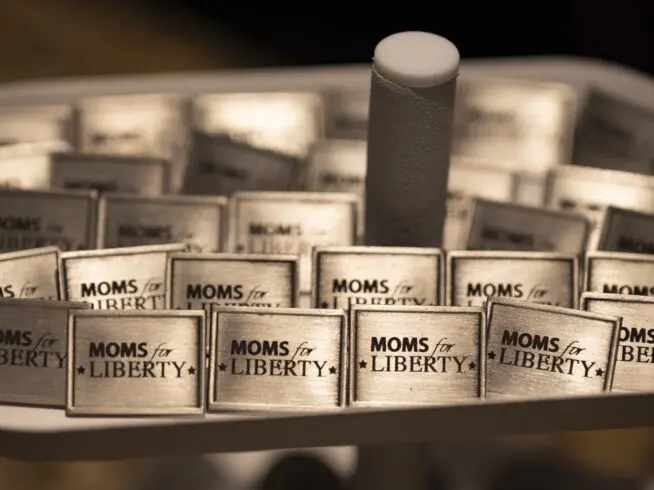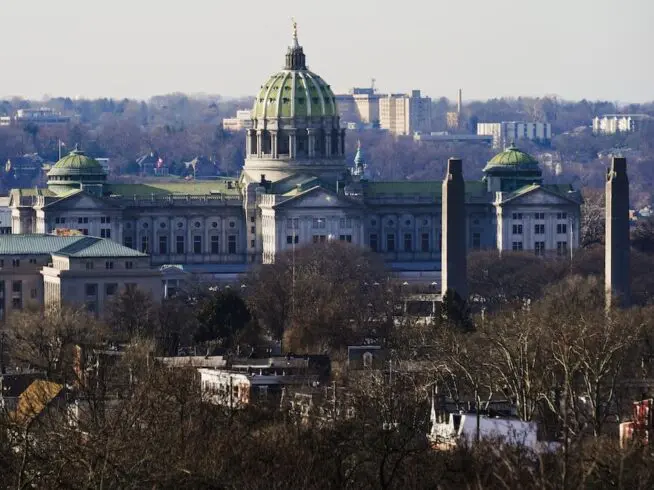PA Democrats have worked to legalize cannabis for years. Could it finally happen in 2024?
With Gov. Shapiro pushing for it and Democrats in control of the House, lawmakers and advocates say recreational marijuana could soon be legal in Pennsylvania.

When state Sen. Sharif Street began pushing for the legalization of recreational cannabis in Pennsylvania not long after he took office in 2017, few lawmakers joined his efforts.
Things, however, are changing.
Buoyed by successful medical marijuana programs and the majority of Americans backing legalization, voters and lawmakers in states across the country have continued to greenlight recreational cannabis — and Pennsylvania legislators say the commonwealth may soon follow suit.
“When I got involved with this in the Legislature, only one or two Democrats wanted to sign on, and no Republicans,” Street said of his past legislation to decriminalize and legalize cannabis. “And now it appears the vast majority of Democrats are supportive, and a growing number of Republicans every day.”
This increased support comes as polls show the majority of Pennsylvania voters favor the legalization of adult-use cannabis, and some 440,000 Pennsylvanians are participating in the state’s medical marijuana program that Democratic Gov. Tom Wolf signed into law in 2016.
Now, with every neighboring state but West Virginia offering legal recreational cannabis, a growing bipartisan chorus of lawmakers in the commonwealth is echoing what some Democratic legislators and advocates have long said: Pennsylvania is losing tax dollars — potentially hundreds of millions of dollars in yearly tax revenue — by not legalizing cannabis. Further, Pennsylvania could save the money it currently spends on the law enforcement and judicial resources it uses to prosecute low-level nonviolent cannabis offenses, said Pennsylvania Cannabis Coalition executive director Meredith Buettner.
“Not only would the commonwealth experience the savings there, but we’d be righting the wrongs of the war on drugs,” Buettner said of a federal drug policy that has led to the incarceration of one in 100 American adults and has overwhelmingly targeted Black and brown Americans.
While advocates like Street and Buettner have made these arguments in the past, lawmakers and activists say the Legislature seems more likely to pass legalization this year because Democratic Gov. Josh Shapiro called for doing so in his budget address; Democratic legislators — who have been more supportive of legalizing cannabis than their Republican colleagues — control the state House; and there are legalization bills with bipartisan sponsorship in both the state House and the state Senate.
The Senate bill, sponsored by Street and Republican Sen. Dan Laughlin, has remained in committee for the past year, which Buettner attributes to legalization-leery Republicans’ majority in Pennsylvania’s upper chamber. In June, Democratic Rep. Emily Kinkead and Republican Rep. Aaron Kaufer announced they would introduce a 220-page bill that would legalize recreational marijuana.
“Certainly, having had a Republican-controlled Legislature, both House and Senate, for the past decade or so has kept cannabis from rising to the top of priority,” Buettner continued. “So it’s great to now see bipartisan introduction in both chambers, with a governor who is also supportive of the policy priority as well.”
While Shapiro and other legalization backers had hoped that recreational cannabis would come about as part of the state’s budget process, Kinkead said it’s unlikely that will happen. But lawmakers and advocates say they feel optimistic that the House bill will likely pass the lower chamber and that Senate Republicans would then feel public pressure to pass it as well.
“Ninety percent of the commonwealth touches a state that’s already legalized it,” Kinkead said. “Ohio, in their process of legalizing it, we’re seeing a lot of the licenses for dispensaries are setting up right along our western border to capitalize on a market that they know exists in Pennsylvania that we’re not capitalizing on. Us legalizing it … keeps Pennsylvania dollars in Pennsylvania to support Pennsylvanians. It’s not flowing into Ohio or New Jersey or New York or Maryland.”
Kinkead and Kaufer’s bill would create an adult-use marijuana program that would be overseen by the Pennsylvania Department of Agriculture, something that Shapiro called for in his budget address. The Senate legislation would create a new board that would regulate the cannabis industry, though Street emphasized that the Department of Agriculture would play a strong role in the roll-out of legalized cannabis. Both bills would create an expungement process for Pennsylvanians with marijuana-related charges; the House legislation would allow for people serving time for unrelated convictions to apply for resentencing because state sentencing guidelines had taken prior cannabis convictions into consideration.
Kinkead and Street said that their legislation would address some of the fallout of the war on drugs and include support for people who have been harmed by existing marijuana laws and now want to open a cannabis business. Under the legislation, the state would prioritize applicants with previous marijuana-related charges and provide business mentorship and financial assistance.
The House bill would also dedicate 5% of revenue from taxes on adult-use cannabis to fund indigent legal defense in Pennsylvania.
Street, who runs a podcast exploring issues around cannabis, said addressing equity in whatever legalization legislation ends up passing is critical. In his own Philadelphia neighborhood, not far from Temple University, Street said he has for decades witnessed racism in how police enforce cannabis laws.
“If you had young African Americans, poor people from the neighborhood, walking around the neighborhood, and they were smoking cannabis, they would almost invariably have a law enforcement encounter. But if you had upper middle-class white Temple kids, they didn’t have a law enforcement encounter, and they’re literally walking around the same neighborhood,” said Street, whose uncle, T. Milton Street, introduced legislation to legalize marijuana as a state senator in the 1980s.




